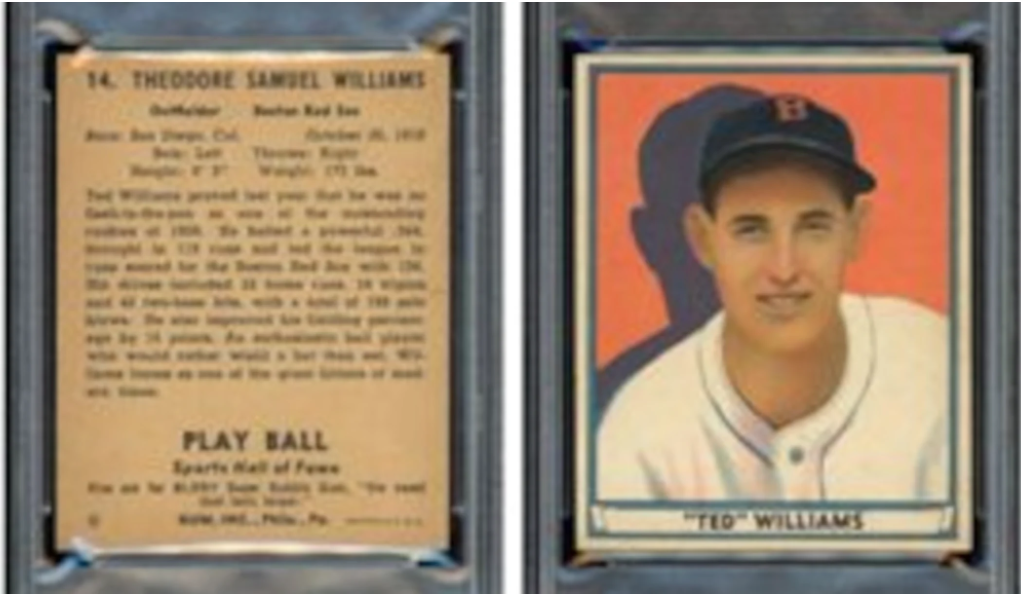In the world of sports card collecting, where the stakes are as high as the price tags on the rarest pieces of cardboard, security is of paramount importance. Unfortunately, the recent case involving a $2 million sports card theft at a Best Western hotel in Ohio highlights vulnerabilities that mar this flourishing hobby. Memory Lane Inc., a renowned California auction house, has found itself embroiled in a legal battle with Best Western International following the mysterious disappearance of a shipment containing high-value vintage baseball cards.
The affair unfolded in 2024 at the Best Western Plus in Strongsville, Ohio, where a treasure trove of 54 rare sports cards, including the highly coveted 1909 Ramly Walter Johnson and a 1941 Ted Williams, both prized beyond measure at a combined value of nearly $90,000, inexplicably vanished. These relics of America’s favorite pastime, dispatched via FedEx, were allegedly intercepted by a questionable duo within the confines of the hotel itself. The plot thickened when investigators uncovered that the hotel staff member, Jacob Paxton, had intercepted the shipment and clandestinely passed it to his partner-in-crime, Jason Bowling.
While justice caught up with Paxton, resulting in a four-to-six-year prison sentence, Bowling slipped away with a mere slap on the wrist, in the form of community supervision. Fortune, however, favored recovery efforts to an extent, as 52 of the stolen cards made their way back into the rightful hands of Memory Lane. Yet, the prized Johnson and Williams cards remain stubbornly elusive, vanishing into the ether of collectibles’ underworld.
While legalities unfold, the incident underscores the crux of the issue: security. Memory Lane, in its pursuit of justice, has filed a civil lawsuit against Best Western International and its local operators, accusing them of negligence in hiring and oversight. Their argument points to the suggestion that this lapse exposed invaluable collectibles to potential harm by employing individuals unfit to manage guest property.
As Memory Lane wages its legal battle, the repercussions of this case could extend well beyond a single hotel chain. With Best Western’s formidable global presence and annual revenue reaching into billions, a ruling against them could have far-reaching implications for the hospitality industry at large. It raises questions about the responsibility of hotels and their role in ensuring the safekeeping of high-value goods.
Yet, questionable security isn’t solely the purview of hotels. The National Sports Collectors Convention, a Mecca for card enthusiasts, has also seen its fair share of fiascos. Over the past two years, this event has been marred by a series of daring thefts, targeting some of the industry’s most sought-after specimens. Notable casualties include a 1951 Bowman Mickey Mantle rookie card and the iconic 1986 Fleer Michael Jordan rookie card. Despite bolstering security measures, shadowy figures still manage to slip through unnoticed, slipping away with the dreams of collectors in their clutches.
This rising tide of high-value sports card thefts speaks to the burgeoning allure and financial potential of the hobby. With the value of these prized possessions escalating in a manner that only a Wall Street bull market could comprehend, collectors and dealers alike are scrambling to institute heavier protections. Precautions such as locked cases, pervasive surveillance, and robust insurance coverage form the new bulwark against a world caught in the throes of card fever.
As the dust settles on the Best Western saga, the stakes are clear – the world of collectible sports cards must heed the wake-up call. These pieces of cardboard, which can carry values that rival the finest pieces of art or the shiniest of jewels, demand the same level of vigilance and protection. For enthusiasts and hobbyists alike, the pursuit is no longer just about amassing a beloved collection; it now calls for them to become adept custodians of history and financial investment.
The story of the Heist at the Best Western Plus, wherever it leads, serves as a pointed reminder to any in the collecting community. As prices skyrocket and demand surges, the responsibility to protect one’s treasures from the sticky fingers of opportunists grows ever more pressing. Whether through legal mandates or self-imposed proactive measures, the narrative leaves us contemplating the delicate balance between nostalgia and security in this beloved pastime. As memory lanes to a storied past intersect with today’s high-value stakes, one can only hope that wisdom prevails in guiding the future of sports card fandom, safeguarding not only the tangible pieces of the past but also the intangible joy they bring.
